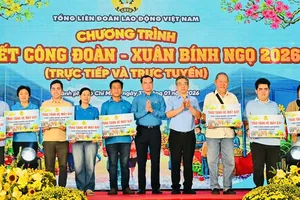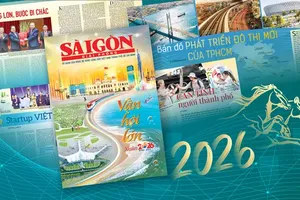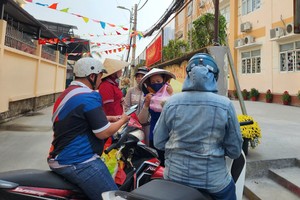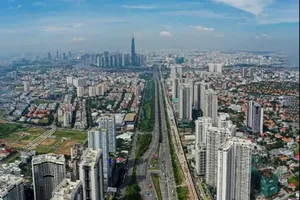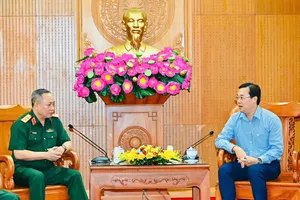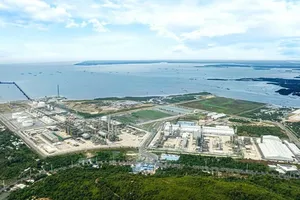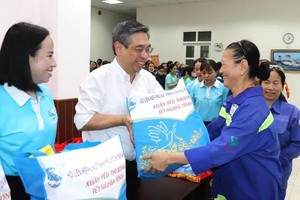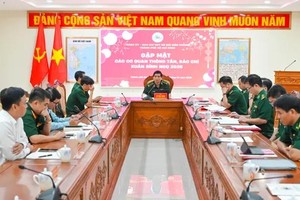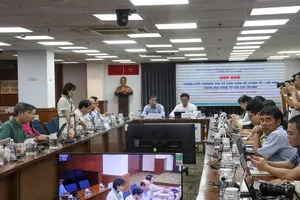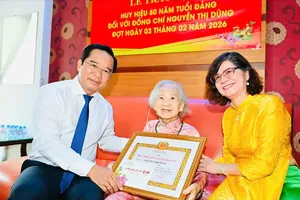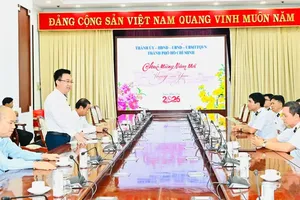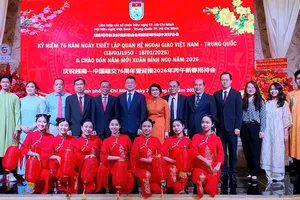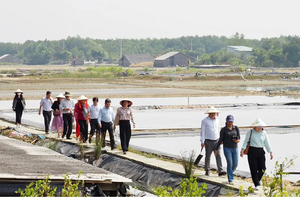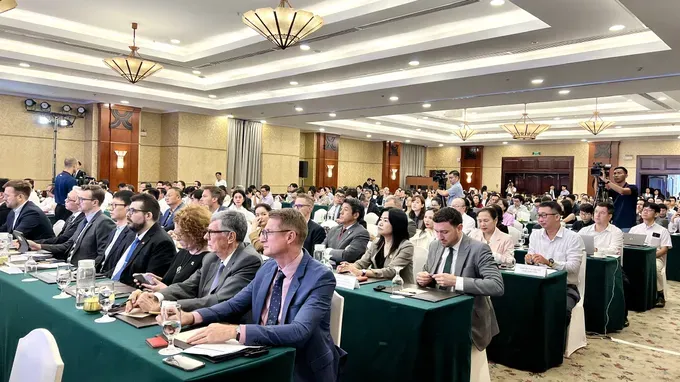
The event, organized by the Ho Chi Minh City Investment and Trade Promotion Center (ITPC), drew more than 400 delegates, including leaders from various municipal departments and agencies, business associations, international investment promotion organizations, and FDI enterprises currently operating in the city.
In his opening remarks, Tran Phu Lu, Director of ITPC, emphasized that the FDI community has made significant contributions to Ho Chi Minh City’s growth, not only in terms of capital and technology, but also in modern management practices, creativity, and global integration. Despite ongoing challenges, investors continue to demonstrate strong confidence in the city’s business environment, described as dynamic, receptive, and committed to continuous reform.
This year’s conference, themed “Ho Chi Minh City, a Megacity: Sustainable Development in a New Era of Opportunities,” takes place against the backdrop of the city’s recent integration with the development zones of Binh Duong and Ba Ria–Vung Tau provinces, forming a new administrative and economic entity covering 6,773 square kilometers. The combined Gross Regional Domestic Product (GRDP) is estimated at VND3.03 quadrillion (US$115 billion), accounting for 23.5 percent of the nation’s GDP. Per capita GRDP reaches US$8,944, 1.7 times higher than the national average.
Ho Chi Minh City has set ambitious targets for the 2025–2030 period, aiming for annual GRDP growth of 10–11 percent, with the digital economy contributing 30–40 percent of GRDP. By 2030, per capita GRDP is projected to reach US$14,000–15,000.
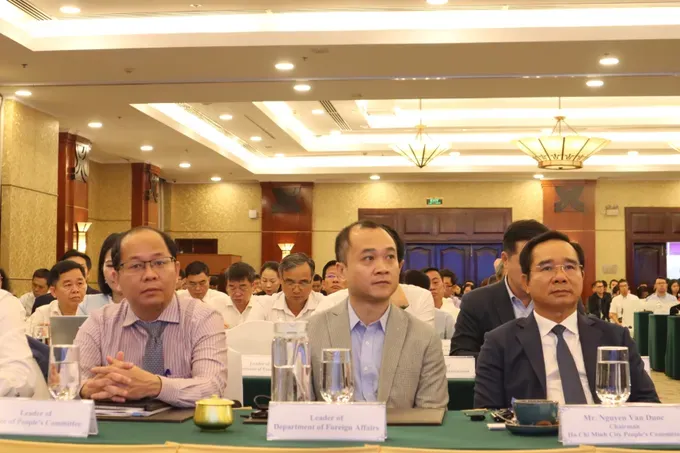
The city is focusing on five strategic pillars: institutional reform, transformation of the growth model, development of key infrastructure, investment attraction, and cultivation of a high-quality workforce. Notably, spending on research and development (R&D) is expected to reach 2–3 percent of GRDP, the proportion of labor with college or university degrees is targeted at 24 percent, and the Human Development Index (HDI) is projected to exceed 0.8.
According to Nguyen Thanh Toan, Deputy Director of Ho Chi Minh City’s Department of Finance, by the end of the third quarter of 2025, the city hosts over 19,800 active FDI projects with a total registered capital exceeding US$141 billion, marking a 37.4 percent increase compared to the same period last year.
The city is pursuing five key breakthrough initiatives, including establishing the Thu Thiem International Financial Center; developing a network of smart cities across the Southeast region; creating an innovation corridor from Thu Duc to industrial zones and seaports; building the Cai Mep–Thi Vai–Can Gio smart logistics port cluster; and developing a high-end ecotourism and resort hub in Vung Tau–Can Gio.
Ho Chi Minh City is leveraging special mechanisms under Resolution 98 and Resolution 222 to attract investment in 20 key projects, spanning financial centers, data hubs, renewable energy, logistics, smart cities, and high-tech industries. These include cutting-edge initiatives in semiconductor manufacturing, artificial intelligence, and biotechnology.
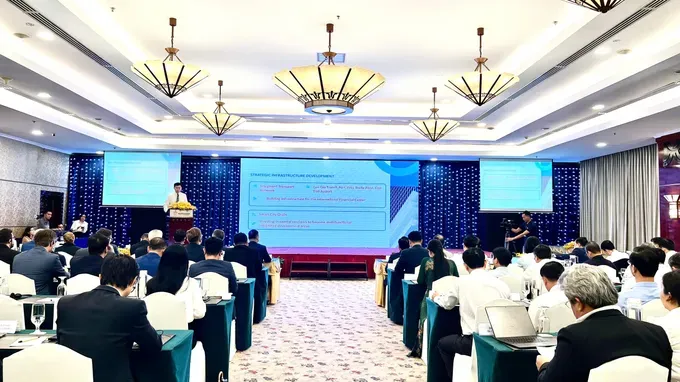
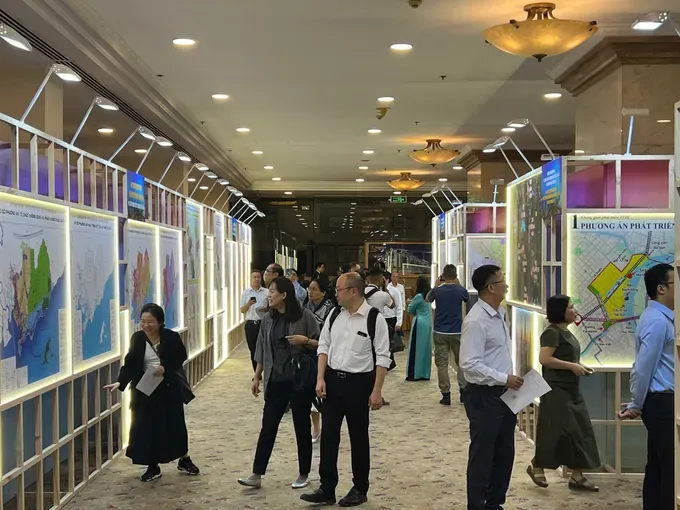
At the conference, nine foreign business associations, including AmCham, EuroCham, JETRO, KOCHAM, SingCham, and NordCham, put forward six key recommendations: accelerating administrative reforms; completing the legal framework for the International Financial Center; developing transport and logistics infrastructure; promoting green finance and a circular economy; enhancing workforce quality; and encouraging digital transformation, FinTech, and e-commerce.
Ho Chi Minh City’s leadership affirmed that the city regards FDI enterprises as strategic partners, committed to supporting them and fostering a transparent, competitive investment environment. The city aims to become an “international megacity” and a regional hub for finance and technology in Southeast Asia.
